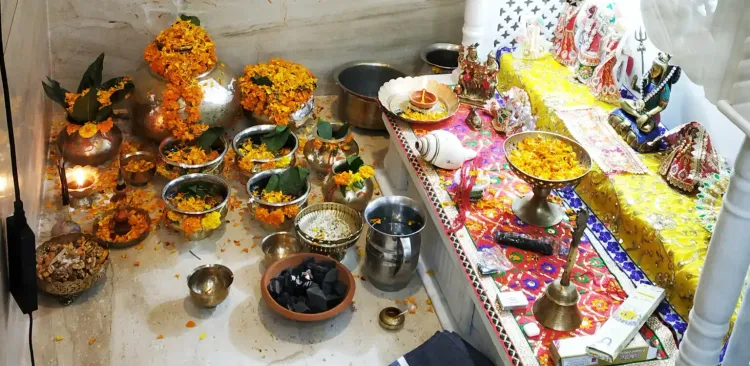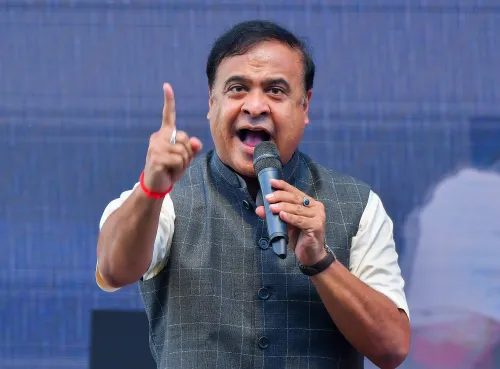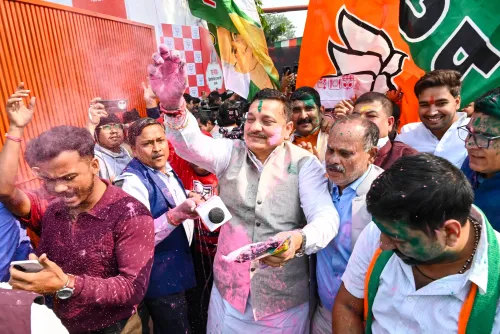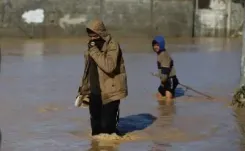Kashmiri Pandits Mark Mahashivratri, Their Most Sacred Festival

Synopsis
Key Takeaways
- Mahashivratri is the holiest festival for Kashmiri Pandits.
- It highlights the multi-religious culture of Kashmir.
- Festivities include Puja and communal meals.
- Walnuts are significant in the Puja Samigri.
- Intercommunity relationships are a vital aspect of the celebration.
Srinagar, Feb 25 (NationPress) As the Kashmiri Pandit community commemorates its most sacred festival, Mahashivratri, Prime Minister Narendra Modi extended his warm wishes on this significant occasion.
PM Modi stated on X, "Herath Poshte!"
"This festival is deeply intertwined with the rich culture of our Kashmiri Pandit brothers and sisters."
"On this momentous occasion, I wish for harmony, good health, and prosperity for all. May it also fulfill aspirations, create new pathways, and bring enduring happiness to everyone."
The Kashmiri Pandit community, primarily composed of Shaivite Brahmins, has a long-standing tradition of celebrating Mahashivratri.
Beyond being a holy festival, Mahashivratri represents the diverse, multi-religious landscape of Kashmir.
This age-old festival, symbolizing religious tolerance and brotherhood, commences with a nightlong Puja on the first day, followed by visits from Muslim neighbors and friends to extend their greetings the next day.
"In my 35 years in Kashmir before we migrated in the 1990s, not a single Shivratri passed without our Muslim friends being invited for a meal."
"A signature dish prepared during Shivratri is fish cooked with lotus stems known as Nadru and radish. Other dishes complement this festival's main delicacy."
"Post-migration, we still prepare fish with Nadru and radish, yet it never tastes the same without our Muslim friends and neighbors joining us for the Shivratri dinner."
"My first Shivratri greetings still come from my Muslim friends back in the Valley, but those nostalgic phone calls resonate deeply," shared G.L. Daftari, who now resides in Roop Nagar, Jammu after relocating from Fateh Kadal in old Srinagar.
The sentiments expressed by Daftari resonate with many older and middle-aged Kashmiri Pandits. In contrast, the younger generation born after the community's exodus from the Valley lack cherished memories. They hear tales of communal harmony and brotherhood from their parents, but these stories often feel distant emotionally.
Kashmiri Pandits still residing in the Valley visit Shiv temples during the festival to offer prayers. The Shiv temple atop the Shankaracharya hill in Srinagar is one such place where evening prayers are conducted.
Almost every significant town in the Valley boasts a Shiv temple where local Pandits gather to pray and celebrate Shivratri.
Walnuts play a vital role in the 'Puja Samigri' on Shivratri. Walnuts soaked in water in an earthen vessel are sent by parents to daughters, from brothers to sisters, and from local Pandits to their Muslim friends and neighbors.
After their migration from the Valley, community members now reside throughout the country.
The festival of Shivratri serves to unite the community and maintain their connections to their roots in the Valley until they can return to their beloved Kashmir.









